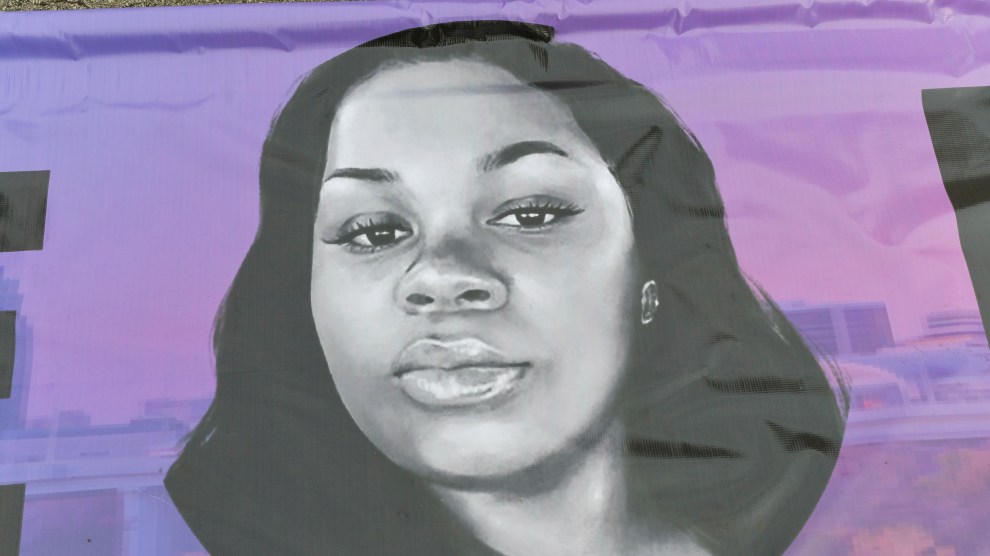This week the Supreme Court has handed down decisions on affirmative action and child porn that have gotten a lot of press. But the affirmative action decision was probably inevitable, and the child porn case is an oddball example of statutory interpretation that probably has no greater significance.
More important is Navarette vs. California, which has real potential to do some long-term damage. In this case, a 911 caller reported an erratic driver, who was then pulled over and eventually convicted of transporting four bags of marijuana. The police had no probable cause to stop the driver except for that one anonymous phone call, but  the Court upheld the conviction anyway. Justice Scalia is typically apoplectic in his dissent, but nonetheless makes some good points:
the Court upheld the conviction anyway. Justice Scalia is typically apoplectic in his dissent, but nonetheless makes some good points:
It gets worse. Not only, it turns out, did the police have no good reason at first to believe that Lorenzo was driving drunk, they had very good reason at last to know that he was not. The Court concludes that the tip, plus confirmation of the truck’s location, produced reasonable suspicion that the truck not only had been but still was barreling dangerously and drunkenly down Highway 1. In fact, alas, it was not, and the officers knew it. They followed the truck for five minutes, presumably to see if it was being operated recklessly. And that was good police work. While the anonymous tip was not enough to support a stop for drunken driving under Terry v. Ohio, it was surely enough to counsel observation of the truck to see if it was driven by a drunken driver.
But the pesky little detail left out of the Court’s reasonable-suspicion equation is that, for the five minutes that the truck was being followed (five minutes is a long time), Lorenzo’s driving was irreproachable. Had the officers witnessed the petitioners violate a single traffic law, they would have had cause to stop the truck, and this case would not be before us. And not only was the driving irreproachable, but the State offers no evidence to suggest that the petitioners even did anything suspicious, such as suddenly slowing down, pulling off to the side of the road, or turning somewhere to see whether they were being followed. Consequently, the tip’s suggestion of ongoing drunken driving (if it could be deemed to suggest that) not only went uncorroborated; it was affirmatively undermined.
The problem here is obvious: the Court has basically said that an anonymous 911 call is sufficient all by itself to justify a police stop and subsequent search of a vehicle.
In this particular case, it’s likely that the 911 caller was entirely sincere. But that’s surely not always the case, and this decision gives police far greater discretion to stop pretty much anyone they like for any reason. You don’t even need to roll your front bumper a foot over the limit line in an intersection to give them a pretext.
If we’re lucky, this case will become a footnote, with the precise nature of its facts giving it little value as precedent. But if we’re not so lucky, it’s yet another step in the Supreme Court’s decades-long project to chip away at the Fourth Amendment. When an unknown caller is all it takes to trigger a search, the entire notion of “probable cause” is pretty much consigned to the ash heap of history.
UPDATE: A regular reader points out that my summary isn’t entirely accurate. Under Navarette, an anonymous tip is enough for police to stop a vehicle, but to search it they still need some suspicion of illegal activity. In this case they “smelled marijuana.”
That’s true, and I should have said so. The reason I didn’t is that I figure this was basically pretextual. There’s always a post hoc reason if the police decide they want to search your car. And even if you think the cops really did smell something, they never would have gotten there without the stop, and there was no reason for the stop in the first place. This strikes me as a pretty direct line from anonymous tip to search, with only the thinnest pretense of probable cause.
I admit that my cynicism here isn’t legally relevant. But honestly, once you allow the stop, cops will find a reason the search the car. There’s simply nothing in their way any longer.








